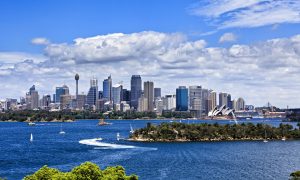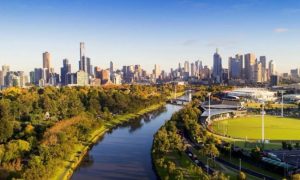Australia has attracted countless people with its high-quality living environment, diverse culture and good educational resources.immigrantsHowever, it is not easy to successfully immigrate to Australia. It requires applicants to have certain conditions and a deep understanding of the application process. This article will analyze in detailImmigration to AustraliaThe basic conditions that need to be met are explained, and based on the experiences of successful applicants, practical suggestions are shared to increase the success rate.
1. What are the requirements for Australian immigration?
Immigration to AustraliaThere are many types of visas, includingskilled migrant, Family Reunification Immigration,investment immigrationDifferent visa types have different requirements for applicants, but the following are some key conditions that generally apply:
1. Age requirements
Most visas have certain age restrictions on applicants. For example, the main applicant for skilled immigration is usually required to be under 45 years old. The younger the age, the more points are added in the points system. For investment or business immigration, the age limit is relatively loose, but more proof of funds is required.
2. verbal ability
English proficiency is an important consideration for Australian immigration. Applicants are usually required to provide English test scores such as IELTS and PTE. The IELTS score required for skilled immigration is generally no less than 6 points in each item. High language scores can add points for immigration and improve competitiveness.
3. Education and skills
Skilled immigration usually requires applicants to have higher education qualifications (such as undergraduate, master's or doctoral degrees) and have certain work experience in related fields. Professional qualifications must be certified by an Australian professional assessment agency, for example, engineers must be assessed by Engineers Australia.
4. Occupation List Matching
There is a Skilled Occupation List for skilled immigrants in Australia. The applicant's occupation must match the occupation on the list. If the applicant's occupation is not on the list, they can choose a state sponsorship visa or other special visa.
5. Health and character requirements
All applicants are required to pass a medical examination to ensure they meet Australian health standards and provide a criminal record certificate to meet character requirements.
6. financial proof
with regards toinvestment immigrationOr some temporary visa categories, applicants need to prove that they have sufficient funds to support their lives in Australia.
2. Experience Sharing by Successful Applicants
1. Digging deeper into visa types
There are many types of Australian visas, and the conditions and procedures for each visa are different. For example, skilled immigration applicants need to pay attention to whether their occupation is on the state sponsorship list;investment immigrationApplicants need to meet high investment capital requirements. Successful applicants usually choose the visa path that best matches their conditions.

2. Reasonable planning of immigration points
Skilled immigrants are assessed using a points system, and age, language ability, education, work experience, etc. will affect the final score. Successful applicants usually increase their points in the following ways:
- Take a language test and aim for a higher score.
- Get extra points for completing higher education in Australia.
- Choose a regional state sponsored visa to get extra points.
3. Well-prepared application materials
Successful applicants often prepare all necessary materials in advance, including academic certification, career assessment reports, language test scores, etc., and ensure the authenticity and completeness of the materials.
4. Hire a professional immigration consultant
Australia's immigration policy is complex and ever-changing, and many applicants choose to hire experienced immigration consultants. They can not only help applicants understand the latest policies, but also develop personalized immigration plans to avoid visa rejections due to incorrect materials or unfamiliar procedures.
5. Pay attention to policy changes in a timely manner
Australia's immigration policy is adjusted every year, such as the update of occupation lists, changes in state sponsorship requirements, etc. Successful applicants will pay close attention to these changes and adjust their application plans according to the latest policies.

3. Practical suggestions to improve success rate
1. Enhancement of language skills
Even if the minimum language requirements are met, applicants are advised to strive for higher language scores, as this will not only add points to the application, but also help them integrate into the Australian work and living environment more quickly.
2. Accumulate relevant work experience
Having long-term and high-quality work experience will provide important support for career assessment and immigration points. Applicants can give priority to accumulating work experience related to the nominated occupation.
3. Focus on policies for remote areas
Australia encourages immigrants to settle in remote areas. Some states or regions offer state sponsorship visas with extra points or simplified procedures. If applicants are willing to choose remote areas, they can greatly increase their chances of approval.
4. Utilize educational resources
If your current conditions do not meet the immigration requirements, you can consider studying higher education courses in Australia. On the one hand, you can increase your academic qualifications, and on the other hand, you have the opportunity to transfer to skilled immigration through a study and work visa.
4. Adjustment of mentality of immigrants to Australia
Successfully immigrating to Australia is not only a test of materials and conditions, but also a psychological challenge. The following are some common suggestions for adjusting your mentality during the immigration process:
- Stay patient.:The immigration application cycle is long, especially for skilled immigration, which may require waiting for a year or even longer.
- Dealing with failure rationally: If the first application is not successful, analyzing the reasons and making adjustments based on the feedback is key.
- Actively seek support: Join immigration forums or communities to exchange experiences and information with other applicants.
concluding remarks
Immigration to AustraliaIt is a journey that requires careful preparation and hard work. Understanding the required conditions, rationally planning the application steps, and learning from the experience of successful applicants can greatly increase your success rate. As long as you have a clear goal and are fully prepared, you will definitely be able to find an immigration path that suits you and realize your dream of immigrating to Australia!






